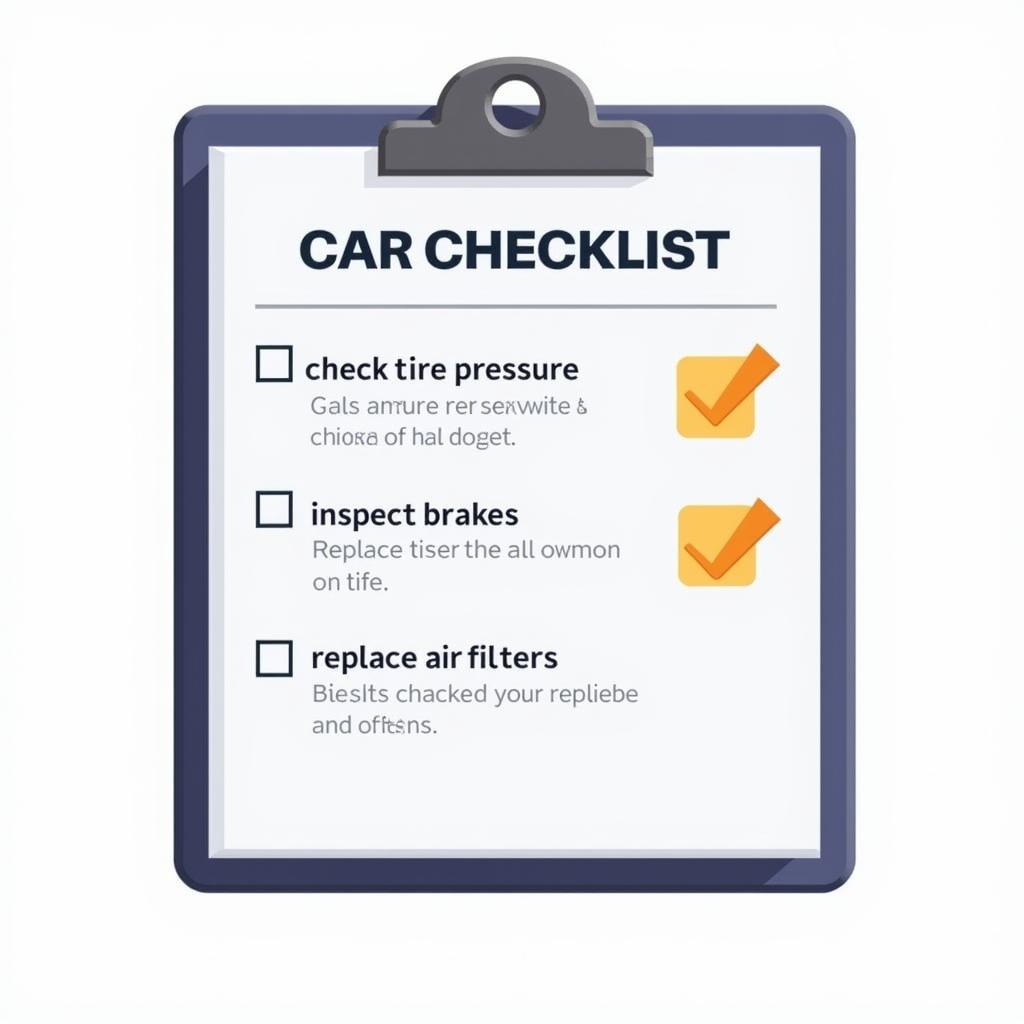Average Cost of a Car Service: What to Expect and Factors that Influence Pricing
Knowing the Average Cost Of A Car Service can feel like navigating a maze, especially with so many factors affecting the price. Whether you’re driving a trusty Toyota or a sleek Mercedes, understanding what constitutes a fair price for different service levels can save you money and prevent unpleasant surprises. This comprehensive guide will delve into the average costs associated with various car service levels, the factors influencing these costs, and tips on finding reputable service providers.
Understanding Car Service Levels and Their Costs
Car service doesn’t follow a one-size-fits-all approach. Instead, service levels are typically categorized based on mileage intervals and the complexity of the tasks involved. Let’s break down the common service levels and their average costs:
1. Basic Oil Change
Think of this as the essential checkup your car needs every few months. A basic oil change usually includes:
- Oil Change: Replacing the old engine oil with the recommended grade for your car.
- Oil Filter Replacement: Installing a new filter to remove contaminants from the engine oil.
- Fluid Top-offs: Checking and refilling essential fluids like windshield washer fluid, coolant, and brake fluid.
- Visual Inspection: A quick scan for any glaring issues like worn-out belts or tire wear.
 Basic Car Service Essentials
Basic Car Service Essentials
Average Cost: $30 – $70
Frequency: Every 3,000 – 5,000 miles or as recommended by your car manufacturer.
2. Intermediate or “Minor” Service
This service level steps up the game in terms of maintenance and addresses slightly more involved tasks. In addition to the basic oil change elements, an intermediate service may include:
- Tire Rotation: Switching the position of your tires to ensure even wear and prolong their lifespan.
- Brake Inspection: Checking the brake pads and rotors for wear and tear.
- Battery Test: Assessing the battery’s charge and overall health.
- Air Filter Replacement: Installing a new air filter to maintain optimal engine performance.
 Intermediate Car Service Checklist
Intermediate Car Service Checklist
Average Cost: $100 – $300
Frequency: Every 15,000 – 30,000 miles or as specified in your car’s owner’s manual.
3. Major or “Full” Service
As the name implies, this service level is the most comprehensive and covers a wide range of maintenance tasks to keep your vehicle in top shape. Building upon the elements of both basic and intermediate services, a major service often encompasses:
- Spark Plug Replacement: Changing the spark plugs to ensure efficient fuel combustion.
- Fuel System Cleaning: Removing deposits from the fuel injectors, lines, and tank to improve fuel economy.
- Coolant Flush: Replacing old coolant to prevent overheating and corrosion.
- Transmission Fluid Check (automatic transmissions): Inspecting the transmission fluid level and condition.
 Major Car Service in Progress
Major Car Service in Progress
Average Cost: $300 – $700
Frequency: Every 60,000 – 90,000 miles or as recommended by your car’s manufacturer.
Factors Influencing Car Service Costs
Several variables can cause fluctuations in car service prices, so it’s important to be aware of these factors:
1. Your Car’s Make and Model
Luxury car brands often come with higher service costs due to specialized parts and labor. Similarly, larger vehicles like SUVs or trucks may require more oil and fluids, impacting the overall service price.
2. Your Location
Service costs tend to be higher in urban areas with higher living costs. Additionally, the competitiveness of the automotive service market in your region can play a role.
3. Service Provider Type
Dealerships typically charge more for labor than independent garages. However, they might offer specialized expertise for your car’s make and model. Independent mechanics, on the other hand, can be more cost-effective but might not have the same level of specialized knowledge for certain brands.
4. Additional Repairs or Replacements
If your car requires repairs or replacements beyond the standard service tasks, these costs will be added to the overall bill. For example, worn brake pads, a failing alternator, or a cracked serpentine belt will require additional parts and labor.
Tips for Managing Car Service Costs
- Consult Your Owner’s Manual: Your car’s owner’s manual is a treasure trove of information, including the recommended service schedule and the type of fluids your car needs.
- Shop Around and Compare Quotes: Don’t hesitate to contact multiple service providers, including dealerships and independent mechanics, to get quotes for the specific service your car requires.
- Inquire About Discounts: Many service providers offer discounts for students, seniors, or military personnel. Additionally, keep an eye out for seasonal promotions or coupons.
- Address Issues Early: Don’t ignore those unusual noises or dashboard warning lights. Addressing minor issues promptly can prevent them from escalating into costly repairs down the road.
Conclusion
Staying proactive with your car’s maintenance is key to its longevity and performance. While the average cost of a car service can vary significantly, understanding the different service levels, influencing factors, and cost-saving tips can empower you to make informed decisions about your car’s care. Remember, regular servicing not only keeps your car running smoothly but also provides peace of mind on the road.
FAQs
1. Do I have to follow the service schedule in my owner’s manual precisely?
While it’s best to adhere to the manufacturer’s recommendations, factors like driving conditions and mileage may warrant adjustments to the schedule. Consult with a trusted mechanic to determine the ideal service intervals for your car.
2. Are genuine parts always necessary, or can I opt for aftermarket alternatives?
While genuine parts are typically recommended, aftermarket options can be a cost-effective alternative in some cases. Discuss your options with your mechanic to make the best choice for your budget and car.
3. How can I find a reputable car service provider in my area?
Seek recommendations from friends, family, or online review platforms. Look for mechanics with certifications (e.g., ASE certification), positive customer feedback, and transparent pricing policies.
4. What should I do if I’m presented with a repair estimate that seems excessive?
Don’t hesitate to get a second opinion from another mechanic. If you believe you’ve been overcharged, discuss your concerns with the service manager or consider seeking advice from a consumer protection agency.

